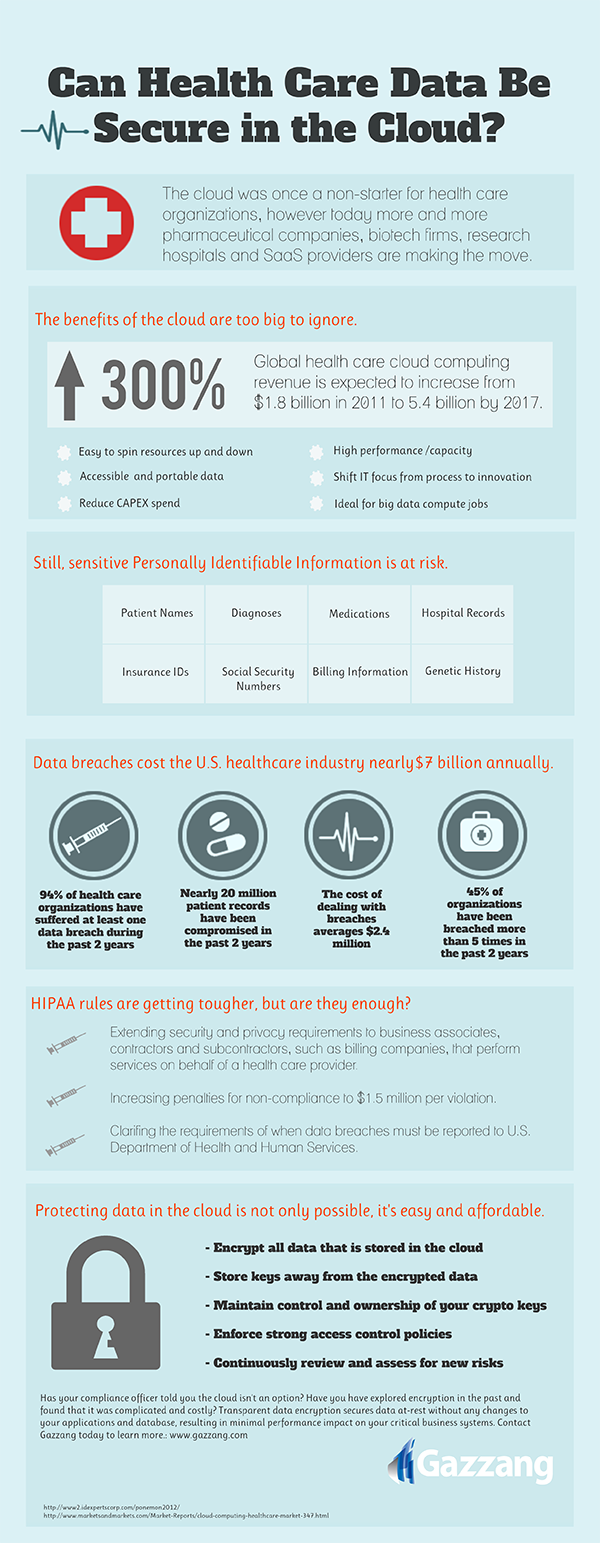The cloud computing market in health care is expected to reach $5.4 billion by 2017 according to a recent study. In the past, the healthcare industry has been extremely resistant to embracing the cloud; however, today more healthcare organizations are rapidly moving their infrastructure and data to the cloud.
Despite the accelerated move towards cloud adoption, it is important for pharma, biotech, SaaS providers, and other healthcare organizations to tread lightly regarding sensitive and HIPAA related information in the cloud.
Applying security best practices is vital to protecting data that rests in the cloud. The following infographic created by data security solutions provider, Gazzang highlights how health care data can be secured in the cloud.

Key highlights of the above infographic include:
- The benefits of the cloud are too big to ignore
– About 300% Global health care cloud computing revenue is expected to increase from $1.8 billion in 2001 to $5.4 billion by 2017
- Easy to spin resources up and down
- Accessible and portable data
- Reduce CAPEX spend
- High Performance/capacity
- Shift IT focus process to innovation
- Ideal for big data compute jobs
- Still, sensitive Personally Identifiable Information is at risk.
- Patient Names
- Diagnoses
- Medications
- Hospital Records
- Insurance IDs
- Social Security Numbers
- Billing Information
- Genetic History
- Data breaches cost the U.S. healthcare industry nearly $7 billion annually.
- 94% of health care organizations have suffered at least one data breach during the past 2 years
- Nearly 20 million patient records have been compromised in the past 2 years
- The cost of dealing with breaches averages $24 million
- 45% of organizations have been breached more than 5 times in the past 2 years
- HIPPA rules are getting tougher, but are they enough?
- Extending security and privacy requirements to business associates, contractors and subcontractors.
- Increased penalties for non-compliance to $1.5 million per violation.
- Clarifying the requirements of when data breaches must be reported to U.S. Department of Health and Human Services.
- Protecting data in the cloud is not only possible, it’s easy and affordable.
- Encrypt all data that is stored in the cloud
- Store keys away from the encrypted data
- Maintain control and ownership of your crypto keys
- Enforce strong access control policies
- Continuously review and assess for new risks
